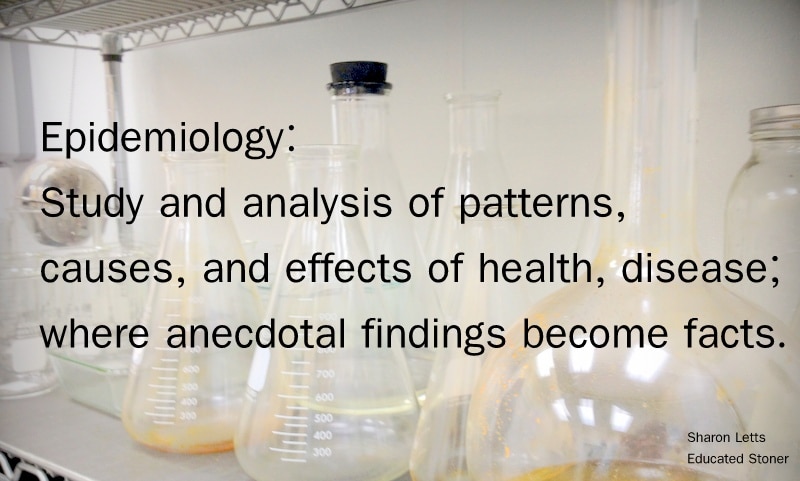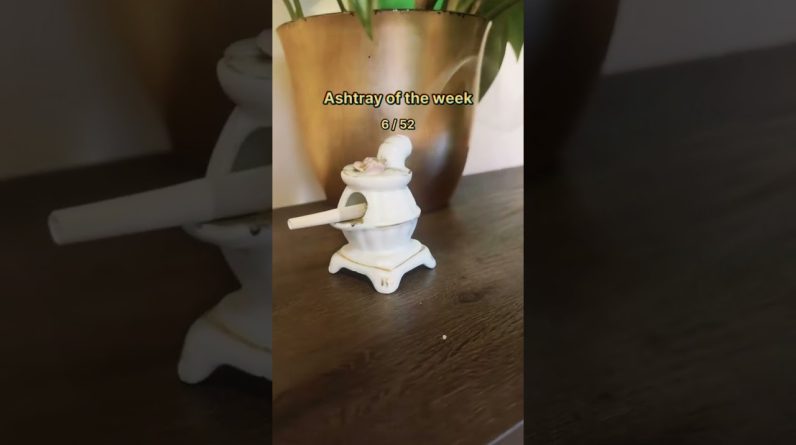Dr. Rebecca Siegel’s book opens to her admission that as a teenager in the 1980s, she was raised on the stereotype of “marijuana,” believing it was only used by unproductive and underachieving “potheads.”
The good doctor said she had to be hit over the head with a frying pan with the knowledge of the benefits of cannabis after listening to her patients’ success stories, prompting her to write her first book, The Brain on Cannabis.
“My life changed while in private practice when one of my patients, I call her Patient 0, opened my mind to cannabis as medicine,” she shared. “After that experience, I was more apt to listening to other patients with similar success in using cannabis for real ailments and disorders.”
As detailed in her introduction, insomnia, depression, ADD, PTSD, and aiding symptoms from treatments for cancer, were just a few of the disorders and symptoms her patients were helped with using cannabis, either by smoking and/or ingesting concentrates.
And while Dr. Siegel still must adhere to the unknown, specifically dealing with the cause and effects of today’s high tetrahydrocannabinol (THC) cultivars, she’s been enlightened to the plant as a superfood, able to treat a wide range of ailments and disorders.
“We still do not know enough about the effects on the brain of long term THC use for recreation,” she began, setting the tone for the interview and the book. “But I’m still listening and observing my patients, and have taken deep dives myself in research all I can to understand. My work has become an evolving education on this plant.”
Path to Enlightenment
Growing up in what she refers to as the suburbs of New York in New Jersey, Dr. Siegel’s father was a doctor, and she shared she had always dreamed of becoming a doctor herself. But it wasn’t until after she had a family of her own, at 29 years of age, that she went back to school to study psychiatry at Duke University in Durham, North Carolina.
Today Dr. Siegel is certified as a Diplomate by both the American Board of Psychiatry and Neurology and the American Academy of Child and Adolescent Psychiatry. In 2004, she won the Women in Psychiatry award from the Mount Sinai Department of Psychiatry.
Her focus is on adult and child psychiatry, and she’s on staff at the Amen Clinic in New York City. The Amen Clinics are a group of mental and physical health clinics that work on the treatment of mood and behavior disorders, founded in 1989 by Daniel G. Amen, a self-help guru and psychiatrist.
Dr. Siegel became a licensed prescriber of medical cannabis in New York State. She has a particular interest in research on the therapeutic effects, risks, and benefits of cannabis treatment, overall.
“My focus in therapy is on adolescent and adult women,” she said. “I believe in treating the whole person with a range of therapeutic techniques and approaches, and if one of my patients is successfully using cannabis to treat a particular disorder, I want to know how and why it works for them.”
Myths & Facts in Real Time
Until the U.S. Federal Government addresses the use of cannabis as medicine and removes it from the Department of Health Services’ Schedule 1, denoting no medicinal value, the myriad of healing stories of successful cannabis use around the world are referred to as “anecdotal.”
As said, Dr. Siegel listened to her patient’s stories of healing with an open mind, prompting her to write The Brain on Cannabis, but the restrictions, along with the decades old negative stigma of the plant, stop doctors like Siegel from fully accepting the plant as 100% beneficial—leaving more questions than answers.
As is common with cannabis studies, the caution given for adolescents and teen use due to the assumed damage to the developing frontal lobes, often comes from narrowly conducted studies, using high tetrahydrocannabinol (THC) formulations on lab rats and mice. To date, long-term use in real time with real kids or adults has never been done.
The highly controversial Patent #6630507 filed and accepted by the U.S. Patent Office naming cannabinoids as neuroprotectants makes it tough for those in the cannabis caregiving community to take contradictory studies citing damage to the frontal lobe seriously, particularly with children. Especially since many in the cannabis community have smoked weed consistently for 30 or 40 years—many starting in adolescents or teens, with nary a smidgen of neurosis or psychosis in sight.
The THC Dilema
The plant didn’t start out with high THC counts. In fact, the original God plant—the plant said to have been included in the formulation of Holy Anointing Oil from the Bible—only registered with upwards of 5% or less THC.
We as a species caused the controversy of high THC cultivars. We upped the levels of THC to the heights we have today via hybridization, and now we must defend the compound and educate on how to dose properly and effectively.
Taking a non-therapeutic dose of a high THC cultivar, either by smoking or ingesting, will most certainly cause an uncomfortable reaction. Using high THC formulations in studies meant to show cause and effect for mental disorders is controversial in itself.

Got Studies?
Taking the summation of a study at face value doesn’t always work when it comes to cannabis. Questions to be asked are, who funded the study, what outcome were they looking for, what were the perimeters of said study—for example, what formulation/strength and dosing were used and for how long?
For decades the National Institute on Drug Abuse funded studies outside of the U.S., looking for negative outcomes on the abuse of cannabis. That’s been its goal, to find and define the abuse.
One such study funded by NIDA in Jamaica in the 1970s, observing pregnant women and their children drinking cannabis tea, was slatted to last 20 years. But when both the pregnancy phase, and the follow-up observation of the children at five years of age showed positive outcomes, NIDA shut it down.
The five year olds drinking cannabis tea each morning didn’t show signs of psychosis or neurosis or any kind of mental disorders. On the contrary, they were far more alert, with stronger immune systems than their fellow students. The mother’s were also healthier through the pregnancies, with no edema or swelling, nausea, or other complications often associated with pregnancy.
Using Granny Storm Crow’s List as a reference tool (see Higher Profile: Granny Storm Crow), the modes of delivery and formulations used in many studies, as well as the duration and scope of said studies on cannabis and the brain vary widely.
Lab rats injected with a high THC formulation right into their frontal lobe cortex are mentioned in one such study showing an unsurprising negative outcome of severe psychosis.
In dosing my dogs I’m painfully aware of their size in correlation to my own, and dose accordingly by weight. Would an observational study of a high THC formulation show negative cognitive results in a small animal? Would summation of said study make a good headline for NIDA, feeding the myth of neurosis and psychosis with the use of cannabis?
The larger question is, what came first, the mental disorder or a dose of THC that goes far beyond a therapeutic level? Cannabis is an enhancer, with the ability to enhance or aggravate an existing disorder. Since many young people aren’t diagnosed with mental disorders until their early 20s, it’s a grand assumption to think the plant caused the disorder.
We in the cannabis caregiving community have witnessed more success stories than not of kids on the Autistic Spectrum, or those diagnosed with ADD or ADHD, helped with focus merely by smoking at a young age—either in adolescents or as teenagers. And they continue to use it because it works, they just don’t understand how or why.
Anecdotal Open Minds
As Dr. Siegel continues her personal and professional journey in listening to her patients use the plant with successes and failures, she continues to learn, as many of us have, that the more we know about this plant, the more we don’t know—or the more we need to know.
The book is a good primer on some of the effects of cannabis on the brain. The fact Dr. Siegel had the courage and the wherewithal to pen such a work in the first place is admirable.
Doctors listening to patients brave enough to share has historically been the way most medical professionals find out about cannabis and plant-based medicine in general, as they are just not taught about the way plants work with us biologically in medical school.
Dr. Siegel’s willingness to listen and learn is appreciated beyond measure. Her first effort is a good one. We can’t wait to see what she does next.
The post Higher Profile: Dr. Rebecca Siegel, Author, The Brain on Cannabis appeared first on High Times.
Source: https://cannabisworld.biz/2022/08/03/higher-profile-dr-rebecca-siegel-author-the-brain-on-cannabis/





